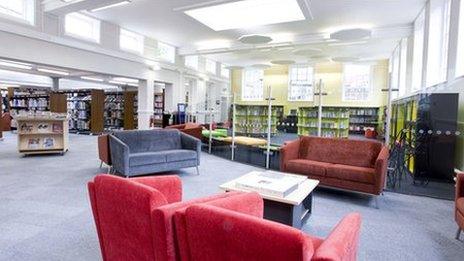North Yorkshire's second library consultation ends
- Published
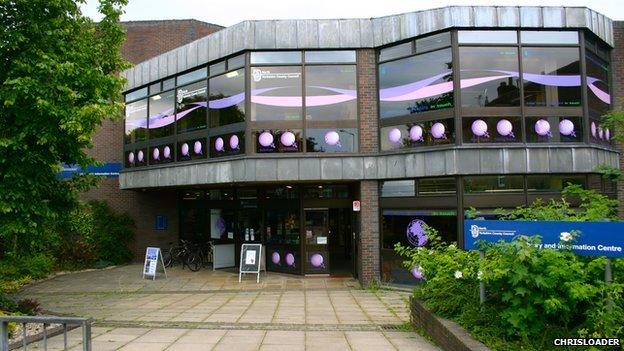
The second consultation proposed that North Yorkshire's main towns would have a "core" library with paid library staff and volunteers
A public consultation on whether more of North Yorkshire's libraries should be run by community groups has ended.
The county's library budget is being almost halved in 10 years, from £7.8m in 2010 to £4.2m by 2020.
Currently nine of the county's 42 libraries are run by community groups but under new proposals, many more libraries would be community-run.
North Yorkshire County Council (NYCC) said more than 7,000 people had taken part in the consultation.
A spokesperson said the second public consultation aimed to "build on the success" of the community-run libraries, currently at Hawes, Stokesley, West Ayton, Grassington, Gargrave, Embsay, Barlby, Masham and Woodfield.
"The success of community libraries in North Yorkshire has demonstrated that communities can run services in their local communities," they added.
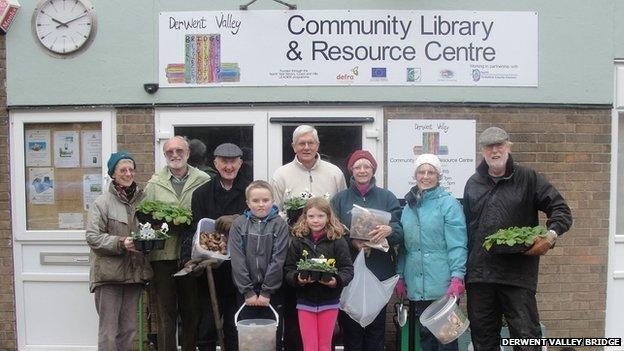
Derwent Valley Bridge centre in West Ayton near Scarborough is one of the county's nine community-run libraries
Current NYCC proposals are to have one "core" library in each of the seven main towns in North Yorkshire, including Harrogate, Northallerton, Scarborough and Selby. These would have paid staff and volunteers.
The county council would pay for the building and one member of staff at five "hybrid" libraries - in Filey, Knaresborough, Pickering, Ripon, and Whitby.
Twenty libraries, including Bedale, Scalby, and Thirsk, would be community-run. Some of these would be amalgamations of two libraries.
The 7,000 public consultation responses will be used to produce a final report and recommendation to council members in June.
The NYCC library budget reduction is part of a cut of £167m to the council's overall budget.
A fortnightly mobile library currently visits 21 communities furthest from static libraries, and there are collections in pubs and village halls in some rural areas.
- Published14 March 2014
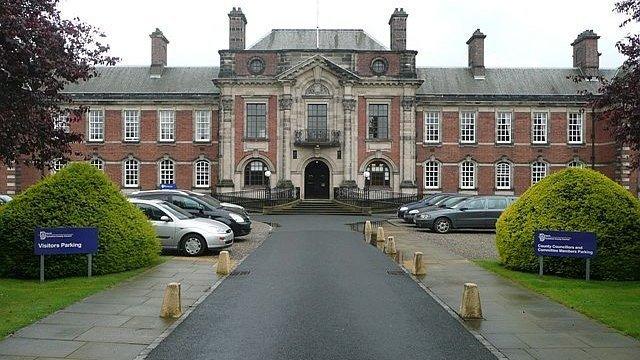
- Published7 April 2014
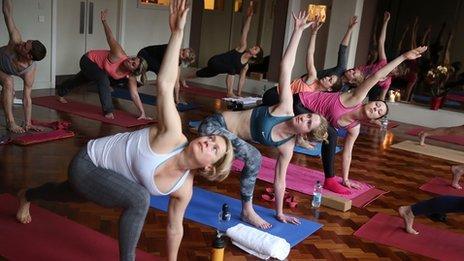
- Published2 June 2011
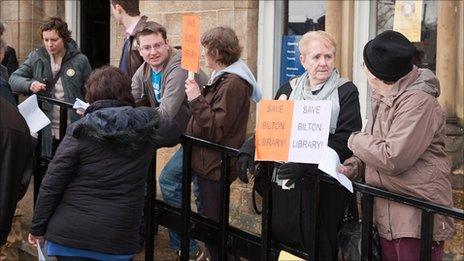
- Published19 January 2011
- Published8 January 2013
